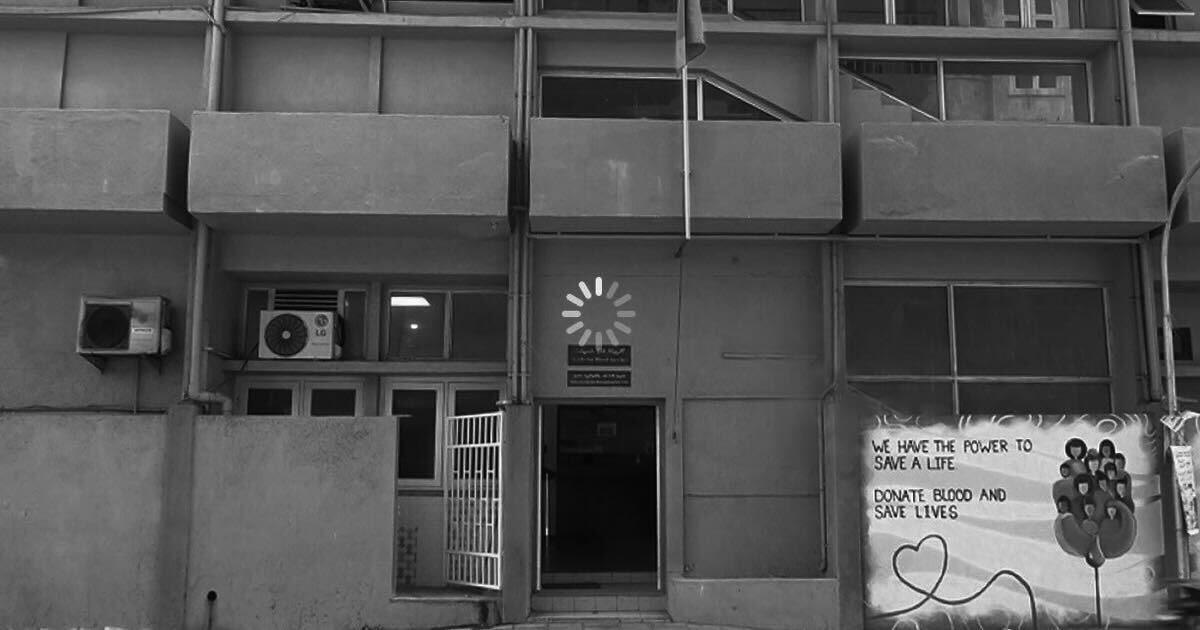One month on: Thalassemia patients still waiting for results of “quick corrective action”
Thalassemia patients report ongoing medicine shortages and delays despite promised reforms.

04 May 2025, 00:54
Maldives has one of the world’s highest rates of thalassemia – a genetic blood disorder that impairs the body’s ability to produce healthy red blood cells. While thalassemia affects approximately 1.7% of the global population, the prevalence in the Maldives is estimated between 16 and 18 percent.
By the end of 2023, 900 thalassemia patients were officially registered in the country. Each year, an average of 28 new cases of beta-thalassemia, a severe form requiring regular blood transfusions, are reported. In 2012 the Thalassemia Control Act was enacted, sanctioning mandatory testing before marriage and registration at the Thalassemia Centre, upon diagnosis.
Despite these figures and legal provisions, patients and families have long voiced serious concerns over neglect and the poor quality of thalassemia treatment and services.
These grievances came to a head on the night of March 22, 2025, when patients took to the street in protest following unsuccessful talks between thalassemia patients, their families, and the management of the Maldives Blood Services (MBS). The following morning, President Dr Mohamed Muizzu made a surprise visit to the Thalassemia Centre, accompanied by the Minister of Health and State Ministers. There, he spoke directly with patients and centre staff and recommended “quick corrective action.”
Now, one month after the visit, many thalassemia patients say little has changed.
Irregular Medicine Supply
One major unresolved issue remains the erratic availability of Jadenu – a life-saving iron chelation drug used to prevent toxic iron build-up in organs due to frequent blood transfusions. The medicine is available in 90 mg, 180 mg, and 360 mg doses, and the dosage must be precisely calibrated according to a patient’s weight.
“Correct dosage still remains a problem,” says 40-year-old Abdullah Shaniz, a patient and certified “expert patient” with the Thalassemia International Federation. “A child who requires 1,000 mg might need six 180 mg tablets. But next month, if only 90 mg tablets are in stock, we'll need to take twelve tablets. This is not sustainable.”
“When you know how many thalassemia children are registered, why shouldn’t there be a consistent supply?” he asks. “When patients complain, the government airfreights a limited supply—no permanent solution.”
Wasted blood
Another major concern is the quality of blood transfusion filters. A previously reliable supply arrangement with U.S.-based company Haemonetics fell through and was replaced with filters that patients say are of “low quality”. These newer filters often clog or cause backflow, leading to blood wastage.
“Around 80 to 100 ml of blood is wasted from each blood packet,” said a 30 year-old patient who preferred to remain anonymous. “You can only keep a packet out of cold storage for four hours. If the filter clogs and transfusion is delayed, we end up throwing the blood away. And with donations getting scarcer, that’s heart-breaking.”
A Taiwanese company, Pureblood, is now being trialled as a replacement supplier. However, many patients remain sceptical about whether this will become a reliable and permanent solution.
Leadership changes, but no improvements
One of the key promises made by President Muizzu during his election campaign was the establishment of a specialised hospital for thalassemia patients. As part of his quick corrective action plan, the stalled construction of a new Thalassemia Centre in Hulhumalé was handed over to the Maldives National Defence Force (MNDF) after delays with the previous contractor.
MNDF spokesperson Major Hana Mohamed told Maldives Independent that “work was underway at full speed,” but was unable to give any further details.
Health Ministry Information Officer Fathimath Shooba said the government aimed to open the new Hulhumale’ facility next week on May 8, World Thalassemia Day.
The President also ordered the recruitment of more nurses and a senior physician for the centre. “Nothing should be left unsettled due to lack of funds,” he declared, according to local media reports.
Following the protests, Centre Director Ahsan Hussain and Public Health Coordinator Faisal Ibrahim of the blood bank were transferred to other positions. In their place, veteran civil servant Ahmed Mausoom was appointed as Director General of the Thalassemia Centre - a post that had been vacant since 2017. Mausoom has held various leadership roles at Indira Gandhi Memorial Hospital (IGMH) and with the Local Government Authority (LGA).
Yet according to patients, these changes have not delivered tangible improvements.
“The newly appointed Director General remains unresponsive,” said Shaniz. “We have a Viber group that includes patients and centre staff, even the Minister of Health and State Minister Aminath Shirna are in it - but they refuse to say a word.”
Director General Mausoom assured Maldives Independent that questions posed by members of the Viber group are “regularly answered and responded to”, with some replies being directly delivered to individuals via phone or text, especially for patients residing in islands. “However, we are unable to provide some lengthy and detailed explanations or answers to repeated questions over issues [with] solutions we are currently formulating,” he said.
Calls for accountability and representation
The removal of State Minister Aminath Shirna has become a major demand of the thalassemia community. In a recent poll conducted within the Viber group, 100 out of 101 respondents voted in favour of her removal. The group includes 370 members, though only 101 participated in the poll.
Shaniz also criticised the government for failing to form a meaningful “working group” of patients, officials, and Centre staff. “We wanted to be part of the policy and decision-making process via the working group, but instead they formed a tokenistic group that is now planning events for Thalassemia Day,” he said
The only improvement, according to Shaniz, is the availability of T2* MRI scans (a specialist scan to detect iron deposits) at the Hulhumale’ Hospital since last week. However, due to a lack of a public announcement or notice on the Viber group by the Thalassemia Centre, this remains unknown to most patients, Shaniz said.
Discussion
No comments yet. Be the first to share your thoughts!
No comments yet. Be the first to join the conversation!
Join the Conversation
Sign in to share your thoughts under an alias and take part in the discussion. Independent journalism thrives on open, respectful debate — your voice matters.




